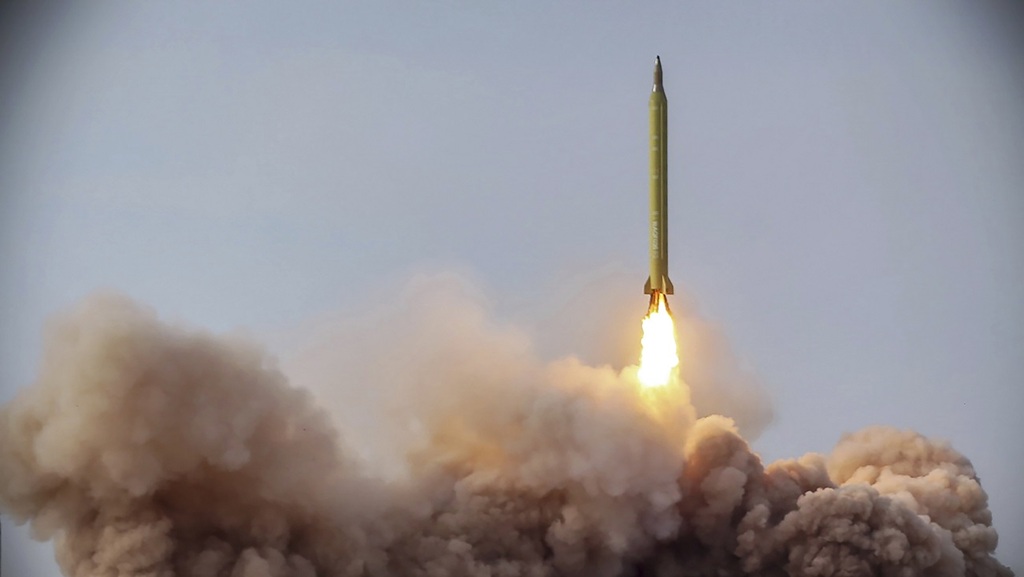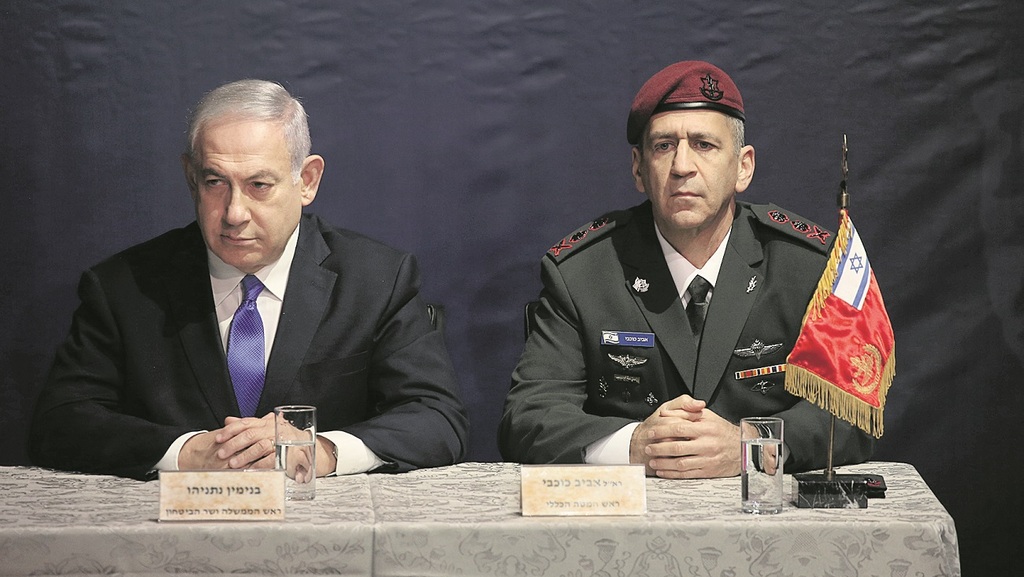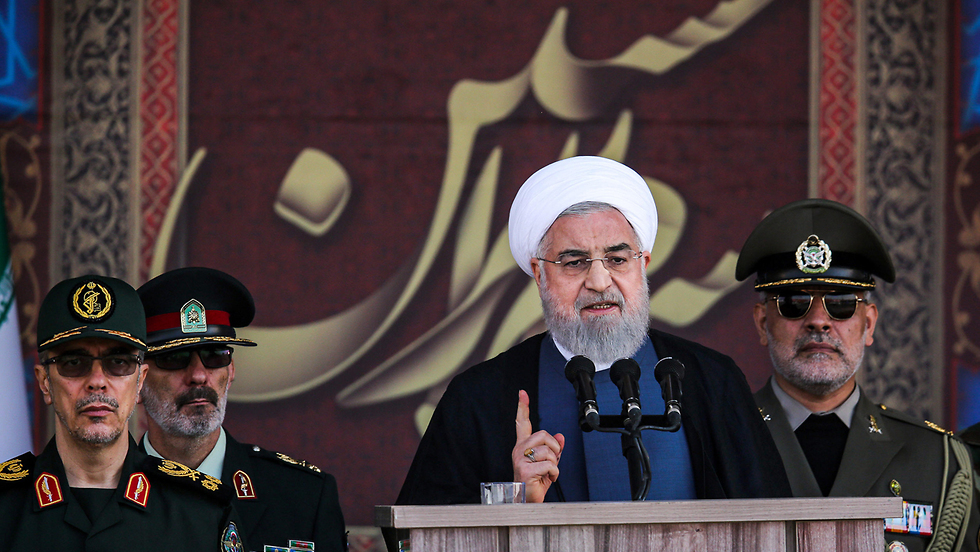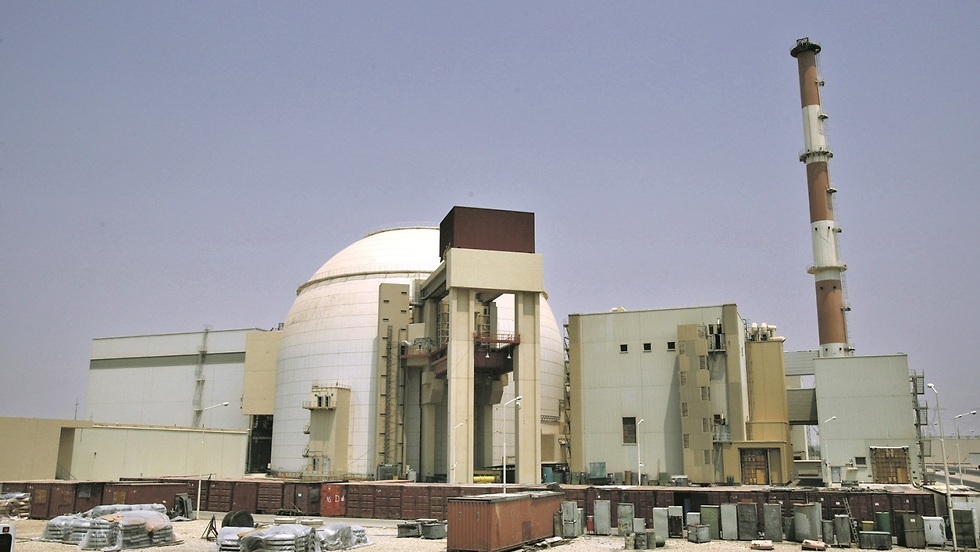Iran - in broad daylight - has come closer to acquiring a nuclear arsenal than ever before.
The Islamic Republic has the facilities and know-how to build nuclear arms, and even the missile technology expertise necessary to ensure their eventual delivery.
4 View gallery


A missile fired as part of an Iranian Revolutionary Guard Corps drill in January
(Photo: AP)
Tehran is now enriching uranium at breakneck speed and operating far faster centrifuges that will allow it to reach its nuclear goals sooner than ever.
Under the pretext of former U.S. president Donald Trump's withdrawal from the 2015 nuclear deal, Iran is not only breaching its commitments under the agreement and obstructing the International Atomic Energy Agency's (IAEA) efforts to monitor its steps, it has also started producing the uranium essential in its race to the bomb.
Iran may have intended to use Trump's short-sightedness (egged on by Prime Minister Benjamin Netanyahu) to move ahead with its nuclear weapons or simply take advantage of the situation to advance unobstructed.
But one thing remains crystal clear: Iran's progress in some areas will be impossible to reverse and the various underground facilities it has constructed in recent years make any military option extremely challenging.
Despite Trump's unrelenting economic sanctions, Iran is continuously bettering its bargaining position against the United States and others as Washington tones down its demands in a seemingly desperate attempt to lure Tehran back into some sort of agreement.
The tragedy unfolding before our eyes is an Israeli government that has frozen in its tracks in the face of a mammoth challenge, hampered by its approach from days gone by and politically paralyzed from forming a stance that could make an impact on the negotiations with Iran or its operations on the ground.
The brazen threats of a military option made by Netanyahu, Defense Minister Benny Gantz and IDF Chief of Staff Aviv Kochavi were spurned by the Iranian side, prompting the U.S. to double down on its efforts to reach some kind of agreement, even a rickety one.
4 View gallery


Prime Minister Benjamin Netanyahu and IDF Chief of Staff Aviv Kochavi
(Photo: Shaul Golan)
Israel is living on borrowed time. The pressure to strike a new deal with the Iranians is only growing and Jerusalem would be better off trying to influence negotiation with pragmatic but firm dialogue.
There is no point in Israel persisting in efforts to bury any kind of dialogue with Tehran. It would be far better to demand the implementation of checks and balances to offset any risks that such a move entails.
UN Resolution 2231 calls on Iran to refrain from undertaking any activity related to ballistic missiles able to carry nuclear warheads. It also calls for full transparency and rigorous inspection of its nuclear facilities and sanctions punitive actions for any breaches (which Iran is already committing).
Israel must aim to strengthen the United States' commitment to preventing a nuclear Iran, preferably with the participation of European allies. It must not let its internal political woes turn the Iranian threat into an Israeli problem.
4 View gallery


Iranian President Hassan Rouhani speaks during a military parade in 2019
(Photo: AFP)
Furthermore, since the arms embargo on Iran expired last year, Israel must demand that the U.S. thwart the Iranian transfer of rockets and missiles to proxies in the Middle East and foil the Islamic Republic's attempts to solidify its foothold in the region.
Ultimately, Israel must not be tempted by promises that Iran would behave any better than it has in the past. In the meantime, Iran's race to obtain nuclear capabilities must be stopped immediately by any means necessary.
Ariel (Eli) Levite is nonresident senior fellow for the Nuclear Policy Program and Cyber Policy Initiative at the Carnegie Endowment and served as deputy director-general for policy at the Israeli Atomic Energy Commission from 2002 to 2007


